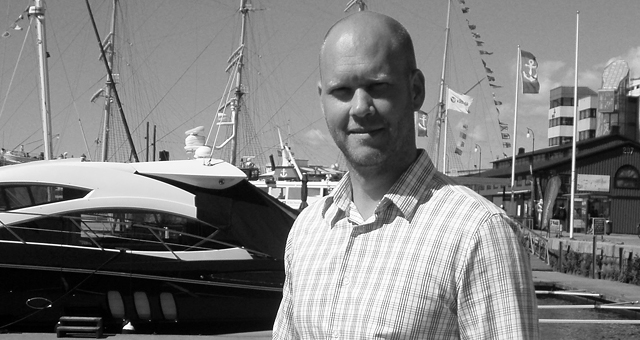
“Logistics is great fun”
Coor possesses leading-edge competence across a raft of service segments. Here, we meet Johan Emmertz, a logistics specialist, who explains why logistics is important, but also enjoyable.
A word from our expert
What are good logistics?
A lot of people take the view that logistics aren’t that important, but a segment with sizeable opportunities to save time and money. Good logistics are about utilizing capacity optimally. This, maybe, is easier said than done, but the main thing is that companies start to scrutinize processes to identify opportunities for improvement. What does the process from pick-up to delivery look like? What are the loopholes consuming time and money? Old habits are one of the biggest timewasters in the logistics chain. That’s why it’s important to be strong enough to question every process, and really question why things are done in a certain way—is this really the best way, or just the way we’re used to doing things?
When Coor scrutinizes a process, we have a theoretical idea of an improvement. We test this idea and the issue of whether the outcome is better or worse. We then act, based on this information. We have to turn over every stone, and test the whole chain systematically. Quite often, information is the weakest link. When you don’t know where, why and how, misunderstandings can easily happen. In many cases, you need to take a standpoint at predetermined points in the chain, which makes logistics more difficult for everyone involved. That’s when you still need to question who it’s important for, and why.
Getting good logistics work in place is like detective work, you need to turn over every stone and have the courage to question everything.
How do you achieve effective freighting?
We work alongside companies including GKN Aerospace and internal transport in their estate. This means we freight materials to its three main workshops where production takes place. We have 25 vehicles for deliveries within the estate. According to our agreement, we have to deliver within 30 minutes, which means there’s pressure on how many vehicles we need. We’re convinced that if we improve our flows, we’ll need fewer vehicles, also creating more flexible and smoother workflow in workshops.
The system currently creates a transport order once an operative has finished a component in his/her part of the process. Then, we have to deliver a new component within a half-hour regardless of whether the next operative needs it. In partnership with our customer, we want to migrate from a push system to a pull system, which means people get material when they need it, rather than when the preceding operative is finished.
We’ve also created ‘milk rounds’ using electric vehicles that run between workshops and stop at loading and unloading points. Previously, we sent materials between workshops on large diesel vehicles designed for heavy loads. Apart from us getting materials out faster and more effectively, the environmental gains from using electric transport rather than diesel vehicles are substantial.
What are the challenges in logistics?
The big challenge is that companies need to invest time and resources to identify those segments that can be improved and rationalized. A lot of businesses find prioritizing this investment difficult. First and foremost, it’s an investment that doesn’t directly affect core business, but rather, is something everyday that just needs to work. Moreover, no-one can say that if you invest in logistics, you’ll save a specific amount. Before you start looking at the whole logistics chain, it’s hard to know how much you will be able to save. Getting good logistics work in place is like detective work, you need to turn over every stone and have the courage to question everything.
Is logistics something that’s suitable for outsourcing?
Absolutely, logistics is one segment that really benefits from other people’s experience. At Coor, we have specialist know-how in this subject, and experience from other customers in different types of flow. This means that we have broader knowledge than any individual company. Our customers shouldn’t need to think about logistics—they should be able to concentrate on core business. Because we have such broad experience, it’s easier for us to improve logistics. We know where we need to be on the lookout for timewasting, and shortcomings are never too close to home so they get overlooked. But having said that, it’s obviously true that all forms of improvement work must be done in consultation with the customer in order to be sustainable and practicable. Logistics is one segment with high potential for savings, and it’s fun when you find out that a small action can generate substantial savings. Once you’ve started improving your logistics chain, it’s hard to stop.
Key facts:
Coor and logistics:
- Coor possesses market-leading competence and 150 staff working on various types of logistics service.
Customers include:
- GKN Aerospace, Volvo Cars, Sapa, SSAB, Trelleborg Sealing Profiles, Kemira
Assignments include:
- Vehicle freighting within industrial estates, forklift trucks servicing and leasing, storage management of raw materials, finished goods and consumables, shipping

